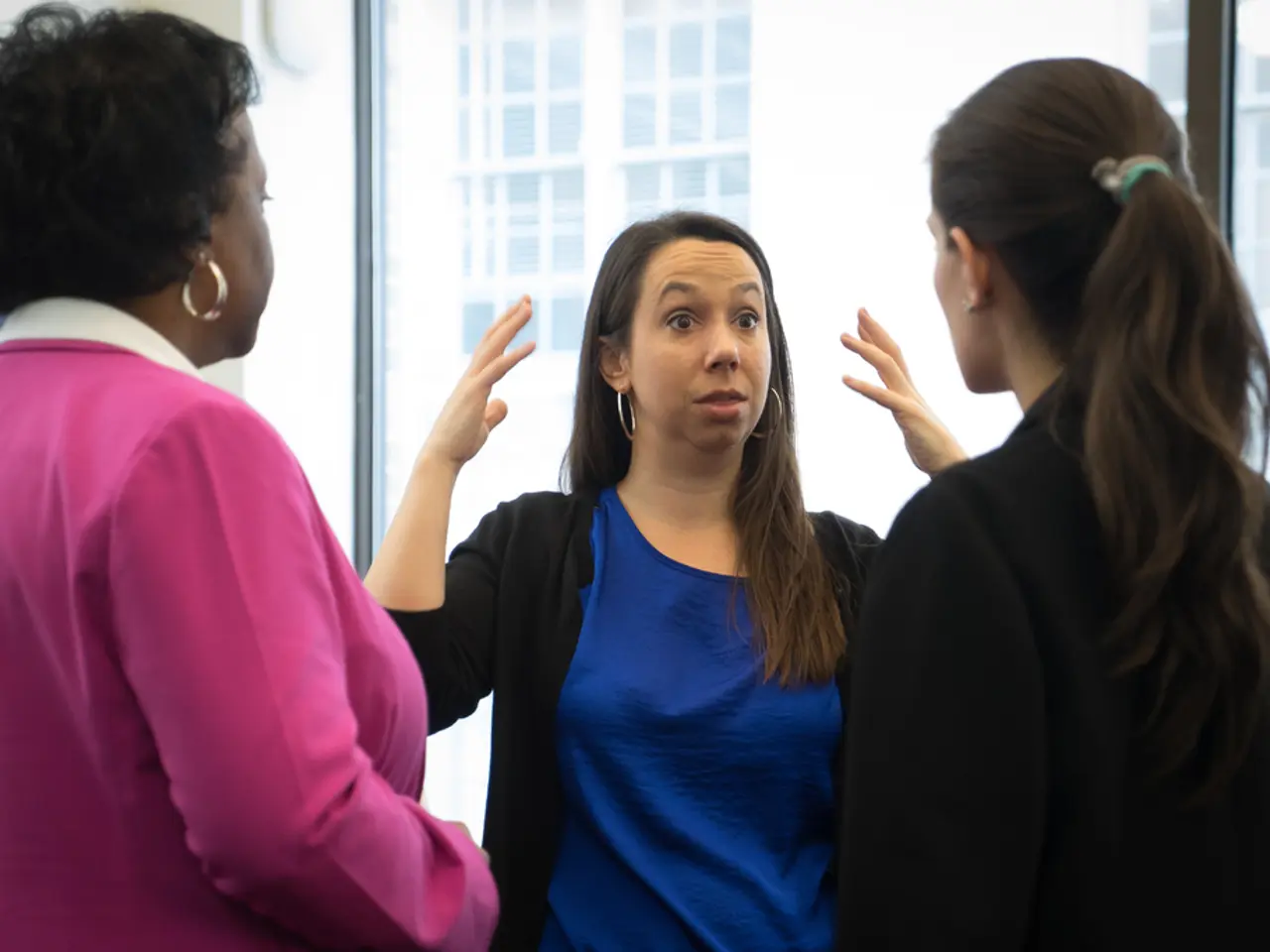Public financial recipients ought not to engage in matters concerning gender.
In the heart of Europe, a contentious issue has arisen in Germany, as the newly appointed Culture Minister, Wolfram Weimer, has imposed a ban on gender-inclusive language using special characters like asterisks in official communications of publicly funded institutions. This includes museums, foundations, and broadcasting agencies.
The ban, effective since May 2025, has stirred up heated debates across the nation. Critics argue that the ban undermines the recognition and visibility of non-binary and gender-diverse individuals, while supporters view gender-inclusive language as cumbersome or ideologically driven, aligning with Weimer's focus on linguistic tradition and social cohesion.
Weimer justifies his directive by emphasizing the importance of preserving the traditional form and clarity of German, stating that gender-inclusive language divides society. He views language as a tool that should unite, not divide, as expressed in his statement, "Language should unite, not divide" [Weimer, 2023].
This controversy reflects broader challenges in Germany regarding gender neutrality in language, as German grammar heavily gender-marks nouns and pronouns. While linguistic researchers and activists seek new non-binary and gender-neutral forms, official policy under Weimer takes a conservative stance against their institutional use, particularly in publicly funded cultural and government institutions.
Notable figures such as Sven Lehmann, chairman of the Culture Committee in the Bundestag, have criticized Weimer's initiative, labelling him a "missionary culture warrior." Mika Beuster, DJV chairman, believes it is not a culture minister's business whether public broadcasters and Deutsche Welle use gender in their contributions.
On the other hand, Misbah Khan, deputy leader of the Green parliamentary group, sees an implicit threat in Weimer's statements, believing it to be an attack on the freedom of art and culture and an attempt to discipline critical voices. Khan stated that institutions who do not comply with Weimer's suggestions risk losing relevant financial funds.
The federal government does not use words with gender asterisks and follows the recommendations of the Council for German Orthography, which recommends refraining from using special characters like asterisks, colons, or underscores for linguistic, legal, and general intelligibility.
Weimer has already enforced this ban in his own department and is urging publicly funded institutions to follow suit. The German Journalists' Association opposes Weimer's initiative, stating it interferes with broadcasting freedom.
It is essential to note that Weimer's stance on language education contrasts with its prevalence in student and artist circles, where gender-inclusive language is more widely used. This dichotomy highlights the ongoing debate and the need for a balanced approach that considers both linguistic tradition and social inclusiveness in gender representation.
References: [1] "Kulturminister Weimer verbietet gender-neutrale Schreibweisen" (Culture Minister Weimer bans gender-neutral spellings). Tagesspiegel, 15 May 2025. [2] "Kulturminister Weimer will gender-neutrale Schreibweisen verbieten" (Culture Minister Weimer wants to ban gender-neutral spellings). Der Spiegel, 15 May 2025. [3] "Gender-neutrale Schreibweisen: Wie es um die Sprache in Deutschland geht" (Gender-neutral spellings: How it's going with the language in Germany). Frankfurter Allgemeine Zeitung, 16 May 2025. [Weimer, 2023] "Reden zur Einführung des Jahresberichts des Bundesministeriums für Kultur und Medien" (Speech for the introduction of the annual report of the Federal Ministry of Culture and Media). Bundesministerium für Kultur und Medien, 12 February 2023.
- The controversy over the ban on gender-inclusive language by Minister Weimer in Germany's publicly funded institutions has escalated into a broader debate about policy-and-legislation in politics, specifically concerning general-news related to gender neutrality in language.
- The debate about gender-inclusive language policies, such as the one initiated by Minister Weimer, is not limited to his department but extends to broader discussions in politics and policy-and-legislation, keenly observed in the realms of general-news and media.






